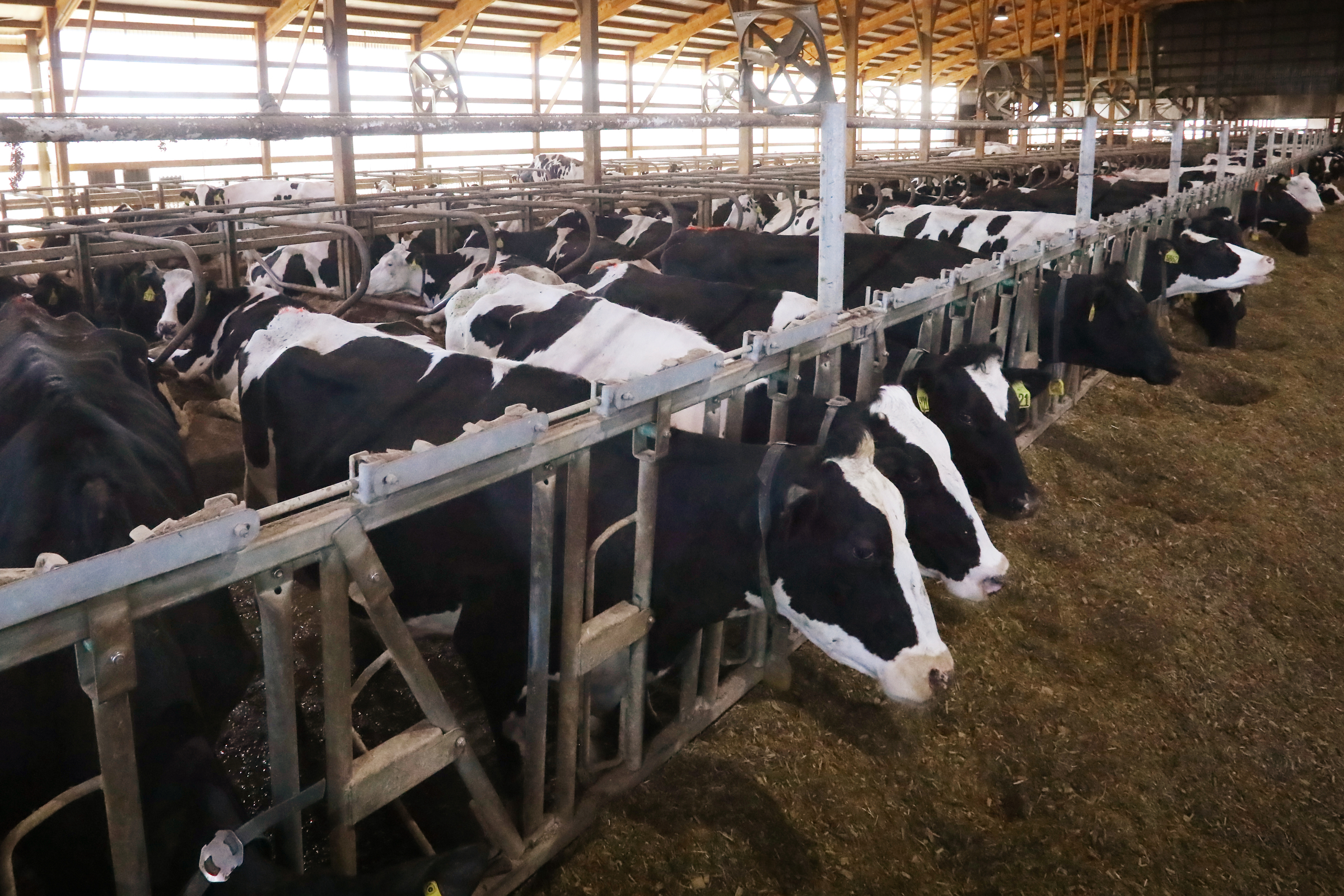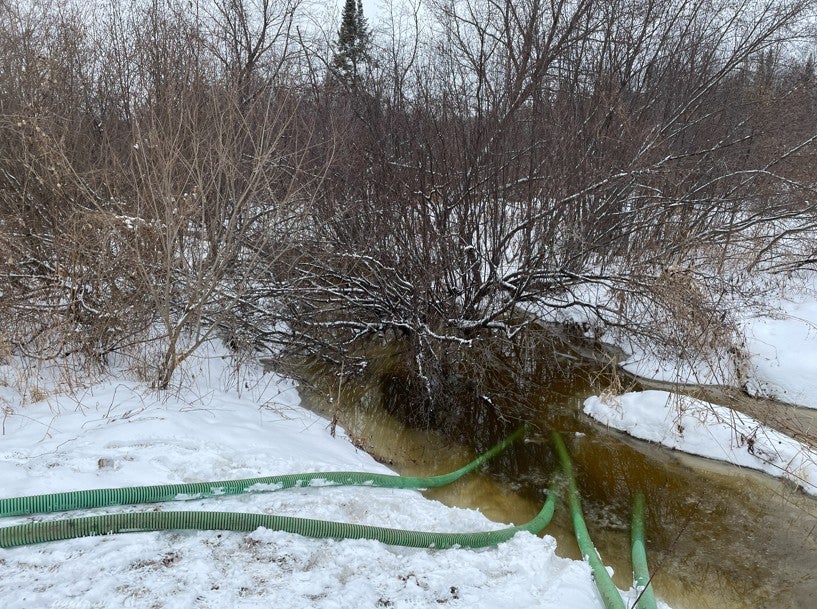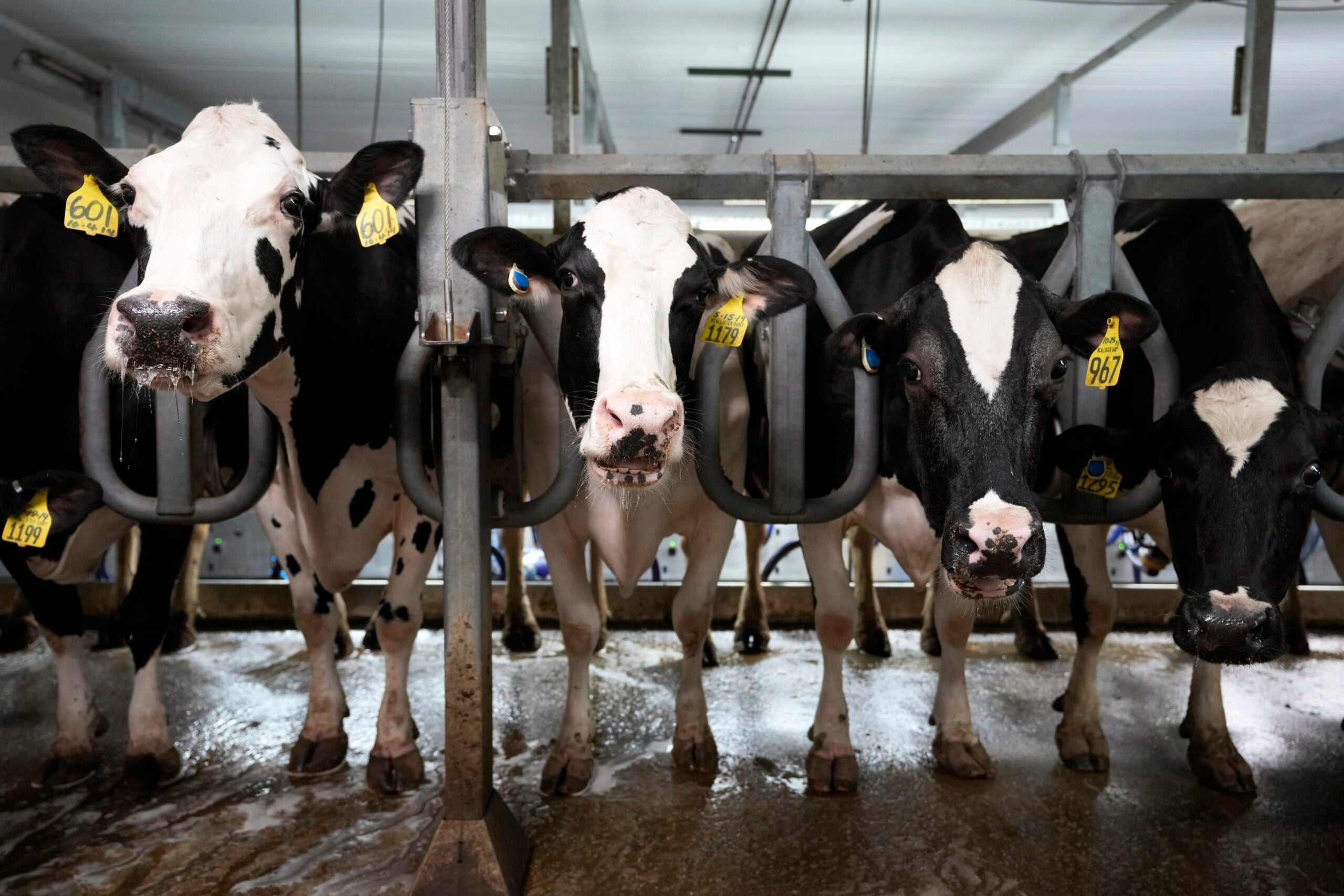One of Wisconsin’s largest dairy operations has reached a settlement with state environmental regulators that calls for the company to eventually stop spreading liquid manure in exchange for avoiding groundwater monitoring requirements.
The deal puts an end to a lawsuit that Kinnard Farms filed against the state Department of Natural Resources last year. Court documents show the settlement went into effect Saturday. Kinnard Farms officials said the agreement was reached last month.
The Kinnard operation has struggled with agricultural pollution for years as contaminants seeped into private wells. Kewaunee County has relatively shallow soil that does a poor job filtering water, making the area especially susceptible to groundwater contamination. The county has 17 industrial farms.
News with a little more humanity
WPR’s “Wisconsin Today” newsletter keeps you connected to the state you love without feeling overwhelmed. No paywall. No agenda. No corporate filter.
The operation filed a lawsuit in April 2022 after the DNR modified the company’s wastewater permit. The revisions called for the operation to limit the size of its herd to 11,369 cows and begin monitoring groundwater in areas contaminated with nitrate from manure spreading. Kinnard Farms officials argued that the business would suffer if they can’t expand their herd and groundwater monitoring would cost tens of thousands of dollars.
Under the settlement, the DNR will impose groundwater monitoring requirements after four years if Kinnard Farms spreads untreated manure.
Under the settlement, Kinnard Farms plans to stop spreading liquid manure within four years. If Kinnard can’t meet that requirement, the DNR can impose groundwater monitoring requirements on fields that receive liquid manure.
The deal also sets out deadlines for Kinnard to install state-of-the-art technology to treat the manure to remove pathogens. If they fail to meet the deadlines, the DNR can immediately impose groundwater monitoring requirements. Kinnard will have to submit semi-annual progress reports on its efforts.
The settlement doesn’t address herd limitations. Kinnard withdrew its challenge to the limitation, but the issue could come up again when Kinnard seeks permit renewal.
“In facilitating this settlement, the DNR deserves credit for recognizing the potential of the technology, the value of providing flexibility within a regulatory framework and the usefulness of collaboration,” Kinnard Farms owner Lee Kinnard said in a statement.
DNR spokesperson Katie Grant didn’t immediately respond to an email seeking comment.
Six Kewaunee County residents represented by environmental law firm Midwest Environmental Advocates joined the lawsuit in opposition to Kinnard Farms. The firm’s senior attorney, Dan Gustafson, said the settlement will help focus attention on the public health risks that large dairy operations pose in areas that are susceptible to groundwater and surface water pollution.
Kinnard and the state Justice Department in March settled a separate case dealing with allegations that the operation improperly spread manure in Kewaunee and Door counties between 2018 ad 2022. Kinnard agreed to pay the state $215,000 and upgrade waste storage facilities if a DNR review determines upgrades are needed.
© Copyright 2026 by The Associated Press. All rights reserved. This material may not be published, broadcast, rewritten or redistributed.





